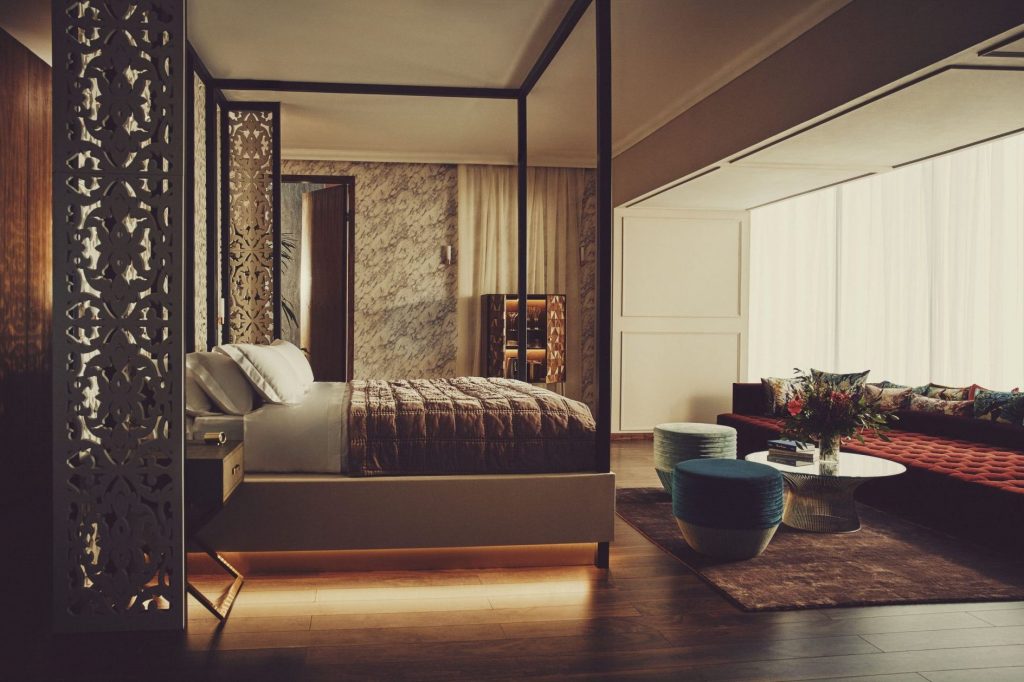Skift Take
IHG's commitment to expand the Regent brand to as many as 50 properties globally signals that the ultra-luxury sector, despite a catastrophic loss of business during the pandemic, is still seen as a durable place to invest.
While coronavirus is expected to deliver the worst performance year on record for the hotel industry, the economy sector’s brands have generally performed well through the crisis and even attracted major investors due to the market segment’s resiliency.
But not all is quiet on the ultra-luxury front.
IHG is pushing ahead with plans to expand the Regent hotel brand, of which it took a 51 percent stake in 2018, across the world as its ultra-luxury brand above its eponymous InterContinental flag. Following the opening of the Regent Shanghai Pudong earlier this year, the company remains committed to its goal of growing the brand from a small, seven-property portfolio in Asia and Europe into a greater, global footprint — even amid a global pandemic.
“Our goal with Regent is not to have it be the biggest hotel brand in the world. We have always said 40, maybe 50, hotels,” said Jane Mackie, senior vice president of global marketing of luxury brands at IHG. “We still have a good solid pipeline for Regent.”
Planned Regent hotels include a property in Phu Quoc, Vietnam — slated to open later this year — and one in Bali, Indonesia, on track to open in 2021.
“In both cases, there haven’t been any meaningful construction delays,” Mackie said. “Really, we’re just looking at timing, from a business perspective, of when it makes sense to open.”
It may seem like a counterproductive time to throttle ahead with a luxury push, given the cratered demand in travel and uncertain recovery. Vietnam’s 20 percent average hotel occupancy in June is up from the 12.5 percent low reached in April, according to STR. But that is still nearly 68 percent down from a year ago.
Vietnam has managed to grow and maintain a domestic traveler profile as a short-term fix, with Saturday staycation trends driving occupancy as high as 35 percent in recent weeks, said Jesper Palmqvist, Asia-Pacific area director for STR. Establishing a travel bubble with neighbors like Laos and countries like Singapore and Japan could also add further fuel to Vietnam’s recovery.
Collectively, it gives IHG enough confidence in the luxury sector and to maintain a 2020 opening for the Phu Quoc Regent.
“In terms of the [hotel industry] recovery, it’s heavily geographic — probably more geographic-based than category-based,” Mackie said. “Anecdotally, resort areas in places like Vietnam have had some really nice recoveries.”
A conversion of the InterContinental Hong Kong, previously a Regent, will revert the property back to its original flag next year, Mackie added. Properties in Jakarta, Indonesia; Kuala Lampur, Malaysia; and Chengdu, China, are expected to deliver between 2022 and 2023.
IHG anticipates some of the Regent brand growth will come from brand conversions like the Shanghai property, which was originally a Four Seasons, and the Hong Kong renovation. But most of the immediate development pipeline is tied to new-build projects, which industry-wide are facing headwinds in the lending market due to banks unwilling to invest in hotels over the uncertain return in travel demand.
Hyatt indicated owners within its Thompson Hotels brand portfolio of upscale hotels were considering alternative capital sources to continue building properties through the crisis, and Mackie hinted Regent owners, if needed, would do the same. There is even opportunity for owners willing and able to continue with construction.
“It depends on the owners. In some cases, there is private financing involved,” Mackie said. “They’re realizing now is a great time, if they have access to capital, to accelerate work if markets are quieter. They’re getting access to better construction costs as well.”
A Long Time Coming
Hotel real estate deals are long-term projects, especially on the luxury side. IHG remains confident in this upper-upscale sector of business, and many of its Regent projects slated to open over the next year were already well underway before the pandemic hit.
This kind of long-term outlook makes sense in the highest-end of the luxury market. It tends to be more insulated and recession-proof in most downturns, said Steve Carvell, a professor at Cornell University’s School of Hotel Administration.
“You’re talking about hundreds of millions of dollars involved in acquiring a location that would fit in with that brand and fitting out a hotel that would adhere to that kind of luxury market brand, from every aspect of the hotel,” Carvell added. “To do such a thing takes years.”
But even the historically durable ultra-luxury sector isn’t above the impact of coronavirus. Government-mandated travel restrictions meant even the upper echelon of travelers who would book a stay at a Regent had to stay home.
That likely is just a blip in the long-term vision of investors looking to get into the luxury hotel game.
“These hotels are long-term plays. The investors in these hotels are long-term investors. It’s often as much of a return on ego as it is a return on equity when you invest in something like this because it’s a landmark-type property,” Carvell said. “The types of investors in those types of things are very different from someone who would invest in a Hampton Inn.”

Have a confidential tip for Skift? Get in touch
Tags: coronavirus, coronavirus recovery, ihg, regent hotels
Photo credit: IHG is sticking by plans to nearly double its seven-hotel Regent (pictured: a Regent guest room) brand portfolio in the next three years. IHG
